Arghyam
Umiam Lake and Shillong's Rivers: In spite of the odds – An advocacy flyer by Arghyam and Peoples Learning Centre
Posted on 22 Dec, 2010 11:01 PM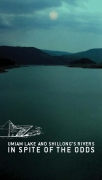 This advocacy flyer by Arghyam and Peoples Learning Centre (PLC) Shillong highlights some of the main problems, action underway and potential solutions to cleaning up the water bodies of Shillong. It deals with the expanding human habitats and escalating socio-economic activities around the rivers Umkrah and Umshyrpi that flow through Shillong leading to their choking with sewage and pollution. This wastewater eventually enters Lake Umiam, which is a reservoir for hydro-electric power.
This advocacy flyer by Arghyam and Peoples Learning Centre (PLC) Shillong highlights some of the main problems, action underway and potential solutions to cleaning up the water bodies of Shillong. It deals with the expanding human habitats and escalating socio-economic activities around the rivers Umkrah and Umshyrpi that flow through Shillong leading to their choking with sewage and pollution. This wastewater eventually enters Lake Umiam, which is a reservoir for hydro-electric power.
PLC is a non-profit organisation that works towards promoting knowledge on equity and rights, and is a platform for facilitating interdisciplinary dialogues between stakeholders in key developmental issues. Arghyam supports PLC in engaging with decision makes as well as citizens in order to create public opinion about river and lake pollution, and promote catchment friendly practices.
Benefits, issues and status of WATSAN systems - A survey of an IDWM project supported by Arghyam
Posted on 22 Dec, 2010 07:56 PM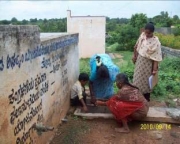 This paper presents the results of a survey of WATSAN systems implemented under an Integrated Domestic Water Management (IDWM) project supported by Arghyam and implemented by MYRADA and MYKAPS in Bangarpet and H D Kote blocks of Kolar district of Karnataka. Arghyam has promoted Roof-top Rain Water Harvesting (RRWH) and eco-sanitation systems in its various project areas through its partner organizations.
This paper presents the results of a survey of WATSAN systems implemented under an Integrated Domestic Water Management (IDWM) project supported by Arghyam and implemented by MYRADA and MYKAPS in Bangarpet and H D Kote blocks of Kolar district of Karnataka. Arghyam has promoted Roof-top Rain Water Harvesting (RRWH) and eco-sanitation systems in its various project areas through its partner organizations.
This project aimed at developing an integrated approach to domestic water management. It focused on construction of RRWH and eco-sanitation toilets in four villages in the project area in Kolar with the aim of creating models of integrated management of domestic water and sanitation in a rural set-up.
Ecological Sanitation locations in India
Posted on 01 Dec, 2010 04:55 PMEcological Sanitation is a new approaching sanitation where there is minimal water use and where human waste can be used as fertilizer. It is a truly sustainable approach.
Model Schools: Suvarna Jala - A status report by Arghyam (2009)
Posted on 15 Nov, 2010 10:46 PM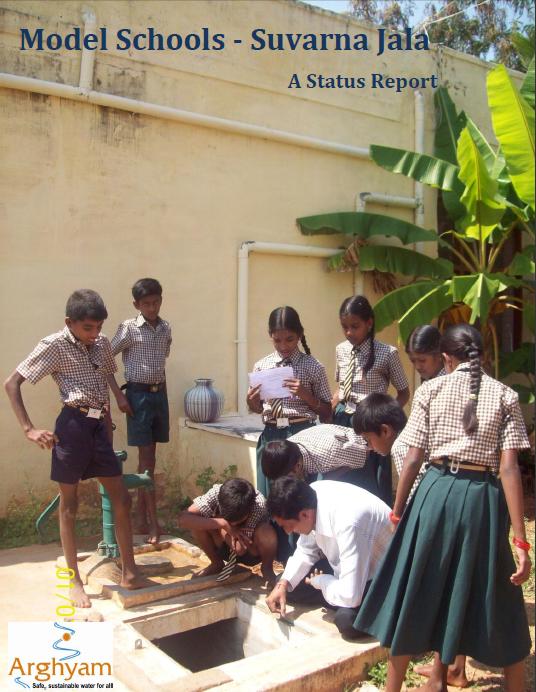 This is a status report of Arghyam's sponsored efforts to develop and showcase community managed water and sanitation systems in 17 schools of 7 districts of Karnataka.
This is a status report of Arghyam's sponsored efforts to develop and showcase community managed water and sanitation systems in 17 schools of 7 districts of Karnataka.
The Government of Karnataka through its Suvarna Jala Yojana aims at providing drinking water in 23,683 rural government schools. This was funded to the tune of Rs 7735 lakh. Arghyam conducted a survey of this scheme in 2007 in 7 districts to ascertain the status of the scheme. The survey found out that out of the 1269 rainwater harvesting structures completed by November 2006 only 140 structures were functional.
ECO Sanitation - A beneficial toilet
Posted on 13 Sep, 2010 12:27 AMA brochure from Utthan about Eco-sanitation produced with support from Arghyam.
Step by step: Achieving sustainable sanitation - Lessons from civil society experiences - A report by Arghyam
Posted on 29 Jul, 2010 02:19 AMSeveral concerns were raised during the discussions on the the manner in which the Total Sanitation Campaign (TSC) was being implemented, followed by identification of steps that were needed to ensure social, technical, institutional, financial and environmental sustainability of the programme.
The discussions revealed that:
- The TSC indeed led to the mainstreaming of sanitation in India. However, more emphasis was placed on hardware targets, while social mobilisation had been largely ignored. Thus, inspite of increase in the coverage of toilets, their usage and sustainability had remained low.

Awards ceremony of the "Lost lakes of Bangalore" video contest
Posted on 25 May, 2010 01:30 PMAwards distributed to the winners of Lost lakes of Bangalore – A video contest
The awards ceremony of the Lost lakes of Bangalore video contest was held on July 3, 2010 at the TERI auditorium, Domlur.
The contest had two categories of entries – general (aimed at citizens) and the student category.
The Lost lakes of Bangalore contest elicited 23 student category and 15 general category videos, covering 32 lakes of the city.
The awards ceremony was well attended by students, participants and several citizens of Bangalore. Ms. Rohini Nilekani, Chairperson, Arghyamreinvigorated the youth to participate in redefining our lifestyles in order to reach sustainable consumption patterns.
Participating in Government Programmes - The Arghyam Experience (2010)
Posted on 21 May, 2010 01:25 PM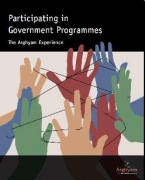 Arghyam, a civil society organisation working on water issues since 2005, has participated in drinking water programmes involving State Governments since its inception, either directly or by partnering with local Civil Society Organisations (CSOs).
Arghyam, a civil society organisation working on water issues since 2005, has participated in drinking water programmes involving State Governments since its inception, either directly or by partnering with local Civil Society Organisations (CSOs).
This publication documents Arghyam's and its partners' collective experiences in participating in these Government programmes and puts forward key learnings and challenges.
The various programmes include - Sachethana, a school rooftop rainwater harvesting programme, and Suvarnajala, a flouride mitigation programme, both in Karnataka; Pani Thiye Panjo, a decentralised drinking water management programme in Gujarat; and Mazhapolima, an open-well recharge programme in Kerala.
Training programme on understanding and resolving water conflicts
Posted on 02 Feb, 2010 04:23 PMForum for Policy Dialogue on Water Conflicts (Forum) in India, in collaboration with the Chalakudi Puzha Samrakshan Samiti and Kerala State Resource Centre of the Forum, is organizing a Training Programme on Understanding and Resolving Water Conflicts from 5 to 8 April 2010 in Kerala (the exact location in Kerala would be announced later).
ASHWAS - A people's survey of water and sanitation in Karnataka (2009)
Posted on 05 Nov, 2009 04:17 PM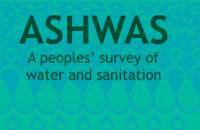
This report includes the findings of the ASHWAS survey (A Survey of Household Water and Sanitation), a participatory survey carried out by Arghyam, that included 28 districts of Karnataka covering more than 17,200 households across 172 gram panchayats (GPs). This was a peoples' survey, and the surveyors were selected from the respective communities that included students, women from self help groups, local NGO partners and other volunteers.